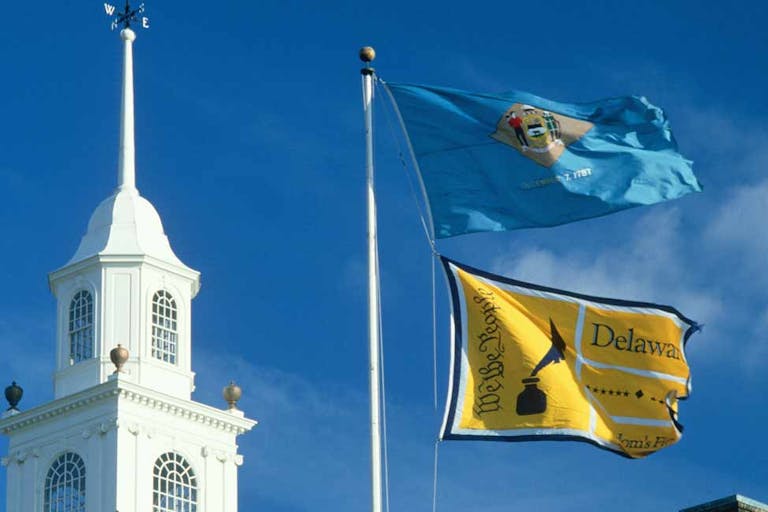
Disability rights groups file lawsuit to stop Delaware assisted suicide law
Angeline Tan
·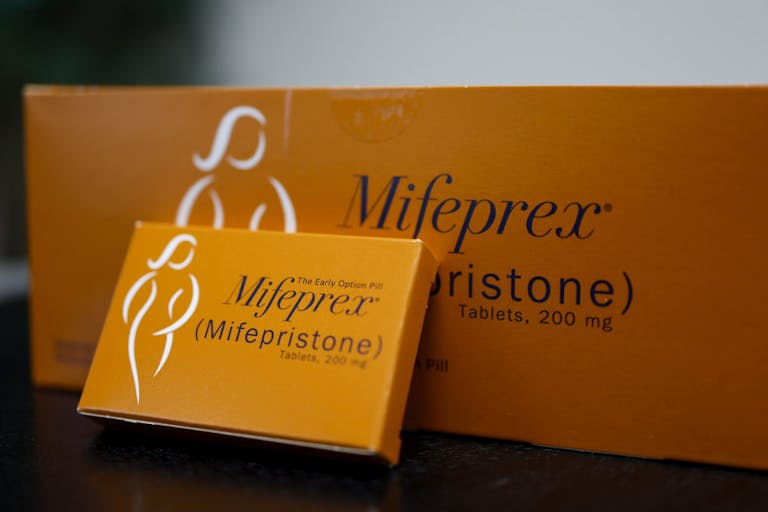
Abortion Pill·By Carole Novielli
Chemical abortion increases at state level while unregulated virtual clinics expand
State abortion data is confirming that chemical abortion use is on the rise, as unregulated virtual abortion pill dispensaries also increase since the Food and Drug Administration’s (FDA) decision to weaken safety regulations (REMS) for the abortion pill mifepristone.
Data from Planned Parenthood’s former “special affiliate,” the Guttmacher Institute, revealed that by 2020, abortion pills made up over half of all abortions (53%). Accumulative data published by the FDA reveals that the abortion pill has ended the lives of 5.6 million babies in the U.S. since its approval in 2000. But, according to a recent analysis published by the Charlotte Lozier Institute (CLI), “Of the 31 states that have released 2021 abortion statistics, 29 reported chemical abortion data for 2020 and 2021.Among these 29 states, chemical abortions jumped by eight percent from 2020 to 2021, representing 57 percent of these states’ total abortions in 2021. In 23 states, chemical abortions composed half or more of all abortions.”
“Twenty-three states reported that chemical abortions increased from 2020. Connecticut had the largest percentage increase (74 percent), while Florida had the largest absolute increase (4,624 chemical abortions). In 2021, twelve states reported increases in chemical abortions of more than 10 percent, with four of those states reporting an increase of more than 30 percent from 2020,” CLI wrote.
“Only six states reported a decrease in chemical abortions from 2020. Arkansas had the largest percentage decrease (31 percent), and Texas had the largest absolute decrease (2,002 abortions). Both Maine and Texas reported decreases in abortion overall,” CLI added, noting, “The trend toward increasing use of chemical abortion generally is likely to continue, as 2021 was the first full year without the Food and Drug Administration’s enforcement of its requirement for mifepristone to be dispensed to women in person.”
Since the Supreme Court’s ruling in Dobbs v. Jackson Women’s Health Organization overturning the Roe v. Wade decision last June, facilities offering chemical abortions and abortion pill dispensaries also increased — and prescribers continue to flout approved FDA gestational limits.
Virtual Clinics
In 2022, the Abortion Care Network (ACN) claimed that, “only 31 states and Washington DC allow clinics to provide abortion via telemedicine…” A June 2023 issue brief published by the pro-abortion Advancing New Standards in Reproductive Health (ANSIRH) claimed that “In 2020, there were no virtual clinics providing medication abortion,” but by 2021, “32 virtual clinics (4% of 773 facilities offering medication abortion) began providing care via telehealth in 22 states and DC.”
“By 2022, 69 virtual clinics (9% of 789 facilities offering medication abortion) provided this care in 23 states and DC. Virtual clinics were largely concentrated in the Northeast and West, while state bans were enacted in the Southeast and Midwest prohibiting any type of abortion, including telehealth medication abortion,” ANSIRH claimed.
A 2023 study recently published in Obstetrics and Gynecology, ACOG’s Green Journal, found that 28 states “currently have statewide or state virtual abortion clinics.” The study, which investigated “current abortion access in the United States based on geographic location and to forecast access according to the landscape of abortion care in the year after the Dobbs v Jackson Women’s Health Organization decision,” also contained multiple errors where data written in text conflicted with data included in the study’s graph (see below).
Article continues below
Dear Reader,
Have you ever wanted to share the miracle of human development with little ones? Live Action is proud to present the "Baby Olivia" board book, which presents the content of Live Action's "Baby Olivia" fetal development video in a fun, new format. It's perfect for helping little minds understand the complex and beautiful process of human development in the womb.
Receive our brand new Baby Olivia board book when you give a one-time gift of $30 or more (or begin a new monthly gift of $15 or more).
It’s unclear how the ACOG’ journal’s reviewers missed these inconsistencies — but when it comes to abortion, in some instances submissions that agree with abortion receive far less scrutiny. Therefore, for this analysis, Live Action News used just the data published in the graph (below).
“Virtual clinics may be fully independent virtual clinics with no brick-and mortar affiliation or those affiliated with a physical clinic,” authors Maeve Alterio, BS, Robin Von Davies, MSMA, Michele Tobias, PhD, Arthur Koehl, BA, Jennifer H. Tang, MD, MSCR, and Dawn Kopp, MD, MPH wrote.
The graph indicates that so-called virtual clinics exist in additional states such as: Alaska (1), California (14), Colorado (11), Connecticut (6), Delaware (4), Hawaii (4), Illinois (11), Iowa (1), Kansas (1), Massachusetts (8), Maine (8), Maryland (9), Michigan (3), Minnesota (9), Montana (4), Nevada (3), New Hampshire (2), New Jersey (7), New Mexico (11), New York (9), Oregon (5), Pennsylvania (2), Rhode Island (6), Vermont (5), Virginia (9), Washington (8), Wyoming (1), and Washington D.C. (5).
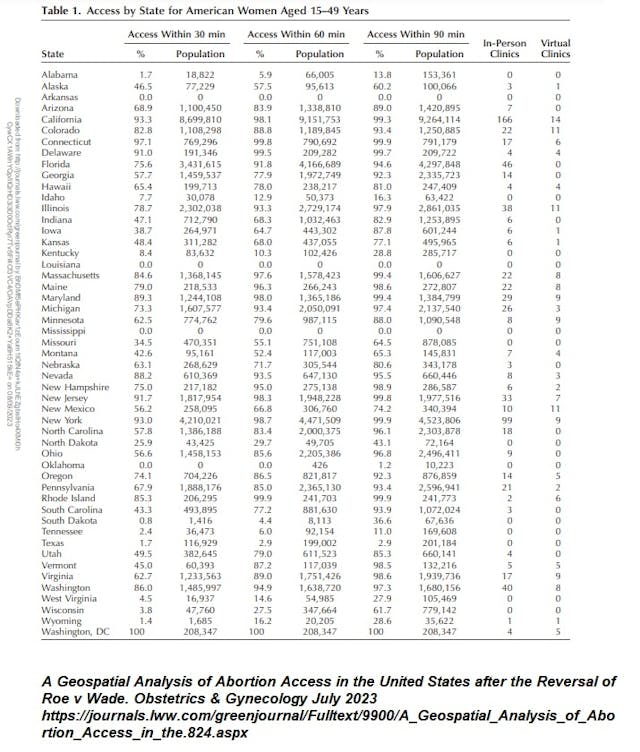
Various websites, including Plan C, identify some of the virtual clinics are as follows:
California: Hey Jane, Abortion on Demand (AOD), Choix, Inc., Juniper Midwifery, Wisp, AbortionTelemed.com, Choises Rising, MySunnyHealth.com, Twentyeight Health
Colorado: Just the Pill, Hey Jane, Abortion on Demand (AOD), Choix, Inc., Juniper Midwifery, Wisp, AbortionTelemed.com, Pills by Post
Connecticut: Hey Jane, Abortion on Demand (AOD), Carafem, Juniper Midwifery, Wisp , AbortionTelemed.com
Delaware: Abortion on Demand (AOD), Carafem, AbortionTelemed.com, Robin Tucker
District of Columbia (DC): Carafem, Robin Tucker, AbortionTelemed.com
Hawaii: Abortion on Demand (AOD), Lilith Care, Choices Rising
Illinois: Hey Jane, Abortion on Demand (AOD), Choix, Inc., Wisp, AbortionTelemed.com, Pills by Post, Whole Woman’s Health (WWH)
Iowa: Carafem
Kansas: Abortion on Demand (AOD)
Maine: Abortion on Demand (AOD), Choix, Inc., Wisp, Robin Tucker, AbortionTelemed.com, Maine Family Planning, Planned Parenthood of Northern New England
Maryland: Hey Jane, Abortion on Demand (AOD), Wisp, Robin Tucker, Whole Woman’s Health
Massachusetts: Hey Jane, Abortion on Demand (AOD), Carafem, AbortionTelemed.com, Lilith Care, Planned Parenthood of Northern New England, MySunnyHealth.com, Planned Parenthood League of Massachusetts, Healthq.org
Michigan: Maitri Wellness
Minnesota: Just the Pill, Abortion on Demand (AOD), Carafem, Whole Women’s Health, Planned Parenthood North Central States, Pills by Post
Montana: Just the Pill, Abortion on Demand (AOD), AbortionTelemed.com, Allfamilieshealth.org, Blue Mountain Clinic, Planned Parenthood of Montana
Nevada: Abortion on Demand (AOD), Carafem
New Hampshire: Abortion on Demand (AOD), Planned Parenthood of Northern New England
New Jersey: Hey Jane, Abortion on Demand (AOD), Carafem, Juniper Midwifery, AbortionTelemed.com, Maitri Wellness
New Mexico: Abortion on Demand (AOD), Carafem, Choix, Inc., Forward Midwifery, Full Circle Health, Juniper Midwifery, Wisp, AbortionTelemed.com, TST Health which stands for The Satanic Temple.
New York: Hey Jane, Abortion on Demand (AOD), Juniper Midwifery, Wisp, AbortionTelemed.com, Pills by Post, MySunnyHealth.com, Maitri Wellness, Twentyeight Health, Cedar River Clinics
Oregon: Abortion on Demand (AOD), AbortionTelemed.com
Pennsylvania: AbortionTelemed.com, Abortion on Demand (AOD), Planned Parenthood Keystone
Rhode Island: Abortion on Demand (AOD), Carafem, AbortionTelemed.com, Lilith Care
Vermont: Abortion on Demand (AOD), Carafem, AbortionTelemed.com, Planned Parenthood of Northern New England
Virginia: Carafem, Hey Jane, Abortion on Demand (AOD), Choix, Inc., Robin Tucker, AbortionTelemed.com, Whole Woman’s Health
Washington: Hey Jane, Abortion on Demand (AOD), Wisp, AbortionTelemed.com, Pills by Post, Planned Parenthood Great Northwest, Hawaiʻi, Alaska, Indiana, Kentucky
Wyoming: Just the Pill
Many chemical abortion pill dispensaries have admitted they spend little to no time with clients and several are openly selling potentially dangerous and poor quality abortion drugs to minors.
For example, DKT International, which sells millions of abortion pills globally, may be shipping abortion drugs into the U.S. manufactured by the Delhi-based Synokem Pharmaceuticals Ltd, which is alleged to have a “shoddy quality record,” according to Bloomberg.com. DKT’s USA affiliate (FemHealthUSA) is Carafem, a U.S. chain offering chemical abortion pill consultations in several states. For years, the international chemical abortion pill dispensary Aid Access sold DKT’s abortion pill kit. Meanwhile, the chemical abortion pill dispensaries Choices Rising and Choix, Inc. sell to children as young as 15.
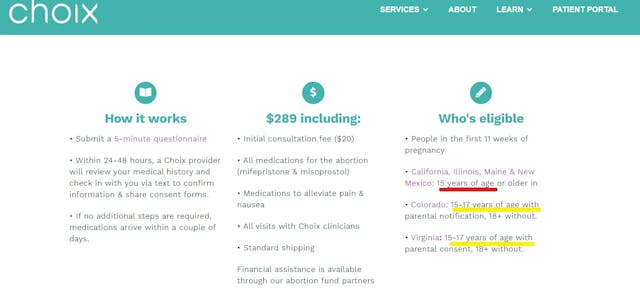
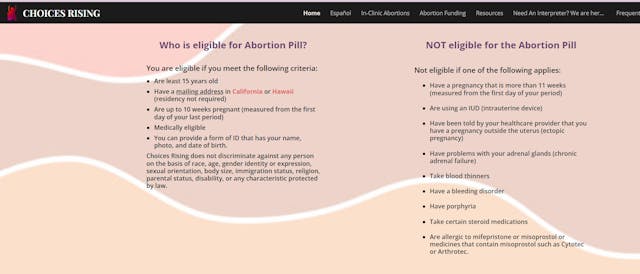
The shift in virtual clinics versus brick and mortar facilities can be attributed to the FDA’s decision to allow mail-order chemical abortion pills. Today, virtually all that is needed to set up a chemical abortion pill business is a computer, phone, and the ability to write a prescription — which is why one abortion provider recently called the selling of abortion pills by mail a “great business model.”

Live Action News is pro-life news and commentary from a pro-life perspective.
Contact editor@liveaction.org for questions, corrections, or if you are seeking permission to reprint any Live Action News content.
Guest Articles: To submit a guest article to Live Action News, email editor@liveaction.org with an attached Word document of 800-1000 words. Please also attach any photos relevant to your submission if applicable. If your submission is accepted for publication, you will be notified within three weeks. Guest articles are not compensated (see our Open License Agreement). Thank you for your interest in Live Action News!

Angeline Tan
·
Abortion Pill
Bridget Sielicki
·
Abortion Pill
Carole Novielli
·
Abortion Pill
Bridget Sielicki
·
Abortion Pill
Bridget Sielicki
·
Abortion Pill
Nancy Flanders
·
Investigative
Carole Novielli
·
Human Rights
Carole Novielli
·
Abortion Pill
Carole Novielli
·
Investigative
Carole Novielli
·
Investigative
Carole Novielli
·